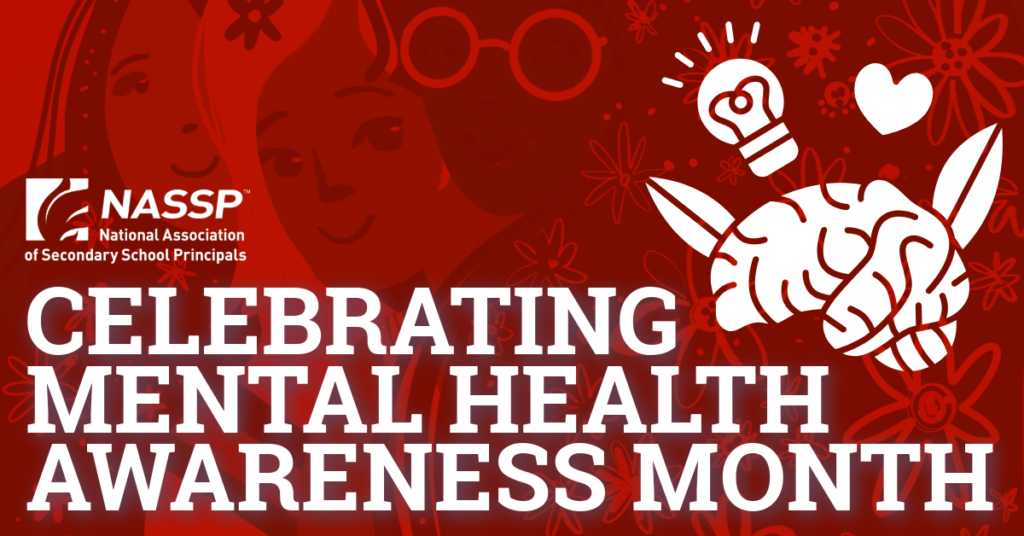My voice matters. Seeking change is welcomed. I am supported.
These three sentences best reflect my experience with NASC, NHS, and my role as a facilitator with NASSP’s Student Leadership Network on Mental Health and Well-Being.
In honor of Mental Health Awareness Month, I want to specifically express my gratitude for the Leadership Network, which has taught me new leadership skills and exposed me to diverse issues among students internationally. Besides serving as a facilitator, I am a student adviser for my county’s school board. In both roles, the most common topics I’ve come across students discussing are self-diagnosing mental illnesses, dealing with anxiety, finding proper outlets for policy advocacy, and the influence of social media on personal well-being. As a facilitator and an adviser, I have tried to amplify the perspectives of over 250,000 students, while inspiring those around me to do the same.
If you’re a student reading this post and you want to get involved in the discussion of mental health, I recommend looking at opportunities locally. For example, you could start a club, lead events for multiple grade levels, or conduct meetings with staff.

At the start of my high school career, I joined a youth coalition for my county, where I was able to reinforce how I can incorporate activities such as yoga and breathing exercise throughout my daily schedule. We also went over informative presentations discussing alcohol and substance use prevention and how to combat the vaping epidemic. Once you acquire a skill set about the varying aspects of mental health, you can begin to share your story in person and online.
I decided to apply to become a Leadership Network facilitator due to the group’s impact on students nationally and internationally. I realized I would be able to create a safe space to share the resources that I rely on while serving as an active listener for those who needed support. By attending network meetings, you can hear from guest speakers, participate in breakout rooms with the team, and engage in opportunities to get further involved with mental health awareness.
This month is a reminder of all the progress that we have made in advocating on such a valuable topic—one that means something different to everyone. For those who have multiple jobs to juggle, loads of coursework to complete, or family responsibilities to tend to, they may struggle finding ways to prioritize their well-being. However, it is fundamental to remember physical health is just as crucial as emotional health.
Those three sentences I mentioned earlier are how you should feel when attending a facilitator, NASC, or NHS meeting. As we become leaders, learning how to say “no” and when to be vulnerable is of utmost importance. There is always someone there for you to talk to, whether a stranger on a hotline or a staff member you trust at school. Being communicative will allow you to understand the roots of your emotion.
So, remember: Your voice matters. Seeking change is welcomed. You are supported.


